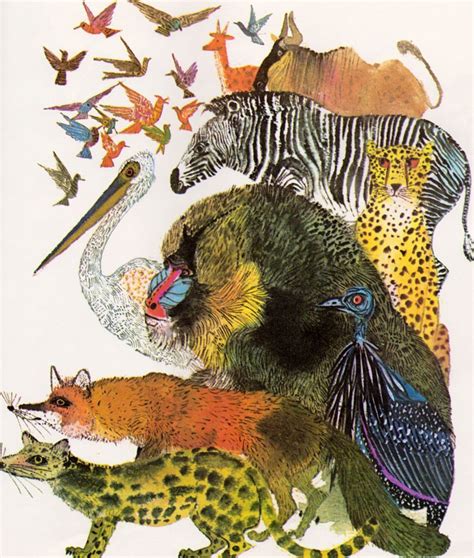A Quote by Annie Dillard
I like to be aware of a book as a piece of writing, and aware of its structure as a product of mind, and yet I want to be able to see the represented world through it. I admire artists who succeed in dividing my attention more or less evenly between the world of their books and the art of their books . . . so that a reader may study the work with pleasure as well as the world that it describes.
Related Quotes
There isn't a grand plan at work in the progression of the books with respect to the line. I do want the books to be different from each other, certainly, but I'm more aware of that on the level of theme or structure. I can tell when I'm writing the last of a particular type of poem because the writing is too easy and I start to feel queasy.
Plate glass... has no beauty of its own. Ideally, you ought not to be able to see it at all, but through it you can see all that is happening outside. That is the equivalent of writing that is plain and unadorned. Ideally, in reading such writing, you are not even aware that you are reading. Ideas and events seem merely to flow from the mind of the writer into that of the reader without any barrier between. I hope that is what is happening when you read this book
I think confronted with the modern world or with the rest of the world, I think people are becoming aware that the Western and Islamic civilizations have more in common than apart. It was a German scholar, C. H. Becker, who said a long time ago that the real dividing line is not between Islam and Christendom; it's the dividing line East of Islam, between the Islamic and Christian worlds together on the one hand and the rest of the world on the other. I think there is a lot of truth in that.
To live in the world without becoming aware of the meaning of the world is like wandering about in a great library without touching the books. It has always seemed to me that symbolism should be restored to the structure of world education. The young are no longer invited to seek the hidden truths, dynamic and eternal, locked within the shapes and behavior of living beings.
I myself discovered many authors through school reading lists and through school anthologies. The positives are: young readers can find the world opening up to them through books they study. The negatives may include bad experiences kids have - if they don't like the book or the teacher, or the way the book is taught.
In my couple of books, including Going Clear, the book about Scientology, I thought it seemed appropriate at the end of the book to help the reader frame things. Because we've gone through the history, and there's likely conflictual feelings in the reader's mind. The reader may not agree with me, but I don't try to influence the reader's judgment. I know everybody who picks this book up already has a decided opinion. But my goal is to open the reader's mind a little bit to alternative narratives.
Part of my function as a writer is to dream awake. And that usually happens. If I sit down to write in the morning, in the beginning of that writing session and the ending of that session, I'm aware that I'm writing. I'm aware of my surroundings. It's like shallow sleep on both ends, when you go to bed and when you wake up. But in the middle, the world is gone and I'm able to see better.
I think art world will have consolidated, I think it will slow down a little bit. I think it will be less white and Western, which it is still at the moment. There will be more female artists in the mix. I think we'll see art forms explored through different media - the Internet, television, books, even. We'll see art produced in forms and media that we haven't seen yet.
Simply put, meta-writing is writing that is self-conscious, self-reflective, and aware of itself as an artifice. The writer is aware she's writing, and she's aware there's a reader, which goes all the way back to Montaigne's often-used address "dear reader," or his brief introduction to Essais: "To the Reader." It can be done in a myriad of ways.
It's insane to be a writer and not be a reader. When I'm writing I'm more likely to be reading four or five books at once, just in bits and pieces rather than subjecting myself to a really brilliant book and thinking, "Well what's the point of me writing anything?" I'm more likely to read a book through when I take a break from writing.
The understanding between a non-technical writer and his reader is that he shall talk more or less like a human being and not like an Act of Parliament. I take it that the aim of such books must be to convey exact thought in inexact language... he can never succeed without the co-operation of the reader.
I am a reader. I am a writer. People assume I do these things to escape. You couldn't be more right. I'm escaping a world I don't like. A world I have no control in. In this world, I am nothing. I am a color, a height, a weight, a number. But in the world of books and writing, I am amazing. I am powerful. I am different. People are better. Worlds are endless. Change is possible. Life is manageable.
Only idiots or snobs ever really thought less of 'genre books' of course. There are stupid books and there are smart books. There are well-written books and badly written books. There are fun books and boring books. All of these distinctions are vastly more important than the distinction between the literary and the non-literary.
Our time and attention is scarce. Art is not that important to us, no matter what we might like to believe... Our love of art is often quite temporary, dependent upon our moods, and our love of art is subservient to our demand for a positive self image. How we look at art should account for those imperfections and work around them. Keep in mind that books, like art museums, are not always geared to the desires of the reader. Maybe we think we are supposed to like tough books, but are we? Who says? Many writers (and art museums) produce for quite a small subsample of the... public.


































